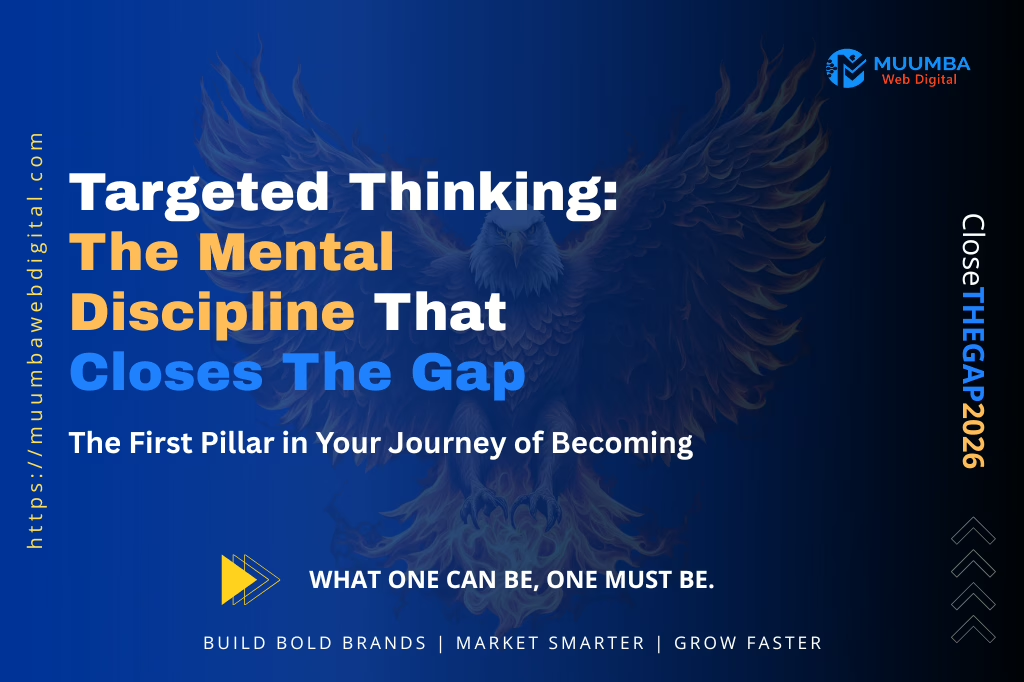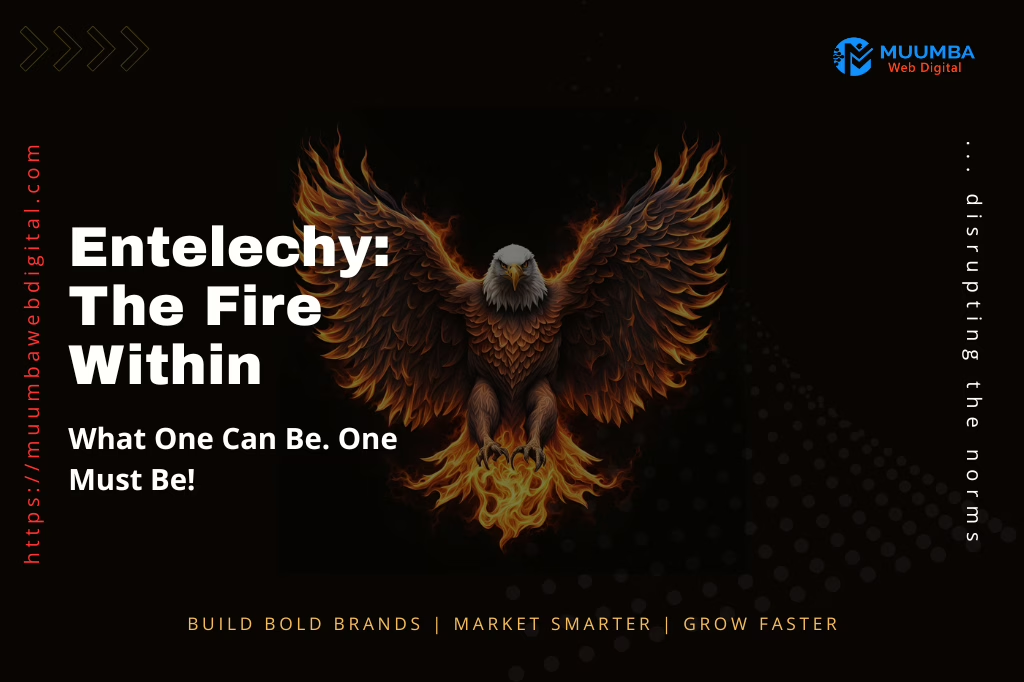
The Essential Elements of an Ecommerce Website in 2026
Build an Online Store That Converts, Scales, and Strengthens Your Brand in 2026
Your ecommerce platform is more than just a tool. It’s the backbone of your online business. The right foundation gives you control, scalability, and creative freedom to grow on your terms. Let’s explore why choosing wisely from the start can mean the difference between building a business that thrives and one that’s limited by its platform.
Introduction: Simplicity, Strategy, and the Power of an Ecommerce Website
In today’s digital economy, ecommerce isn’t just an option. It’s a necessity. Whether you’re selling tangible products, digital downloads, or professional services, your ecommerce website is the most powerful business tool you can own. Think of it as your storefront, salesperson, and support desk, all in one. It works 24/7, reaches audiences far beyond your local market, and helps you build a customer base that grows with time.
At Muumba Web Digital, we meet many entrepreneurs and business owners who say, “We just want a simple website.” And that’s a great place to start because simplicity brings clarity. But we always follow up with one key question: “What do you want your website to achieve for your business?”
Because the goal isn’t just to build something simple, but to build something effective, a website that aligns with your business goals, brand message, and customers’ needs. Simplicity should never mean “cheap” or “minimal effort.” It should mean clarity of purpose, removing distractions so that your website performs efficiently, loads fast, looks professional, and most importantly, converts visitors into customers.
Your ecommerce website is not a cost. It’s an investment in your brand’s future. In today’s market, where competition is fierce and attention is scarce, your website could very well be the difference between success and invisibility. And that’s why we created this guide to help you understand the core elements that make an ecommerce website effective, whether you’re a startup or an established brand.

Table of Contents: Explore What Matters Most
Use this guide to understand every part of your ecommerce website. Click a section to jump ahead:
- Foundation: Domain, Hosting, and Platform
- Professional Design and User Experience (UX)
- Product Pages That Sell
- Shopping Cart and Checkout Experience
- Search and Filtering Tools
- Customer Account and Order Management
- Security, Backups, and Performance Optimization
- Marketing and Analytics Integrations
- Customer Support and Communication Channels
- Ongoing Maintenance and Scalability
- Conclusion: The Website as a Growth Engine
Big-picture: what’s happening to global ecommerce now
A few fast facts to anchor the trends:
- The number of ecommerce stores has exploded in recent years. Estimates put the global total in the mid-to-high tens of millions (sources report ~27–28 million ecommerce sites in 2025).
- Global online retail sales are projected to be in the multi-trillion dollar range in 2025 (estimates vary by source but are roughly $6–7+ trillion). Growth in online spending remains very strong.
- AI is moving from experimentation to production across ecommerce use cases (recommendations, search, chat, personalization, automation). The AI-enabled ecommerce segment is already measured in billions and is growing rapidly.
- At the same time, cyberthreats are increasing in volume and sophistication. AI tools help attackers automate scans and credential stuffing, pushing security to the top of priorities for online retailers.
Bottom line: demand + opportunity are surging, and the technical bar (AI readiness, performance, security) is rising with it.
How AI & global shifts affect ecommerce (the practical effects)
- Search behavior is changing. AI agents and conversational search (ChatGPT, Google Bard, etc.) are increasingly surfacing product recommendations and may route shoppers directly to product pages or into platform-native purchase flows. Brands must optimize product metadata, structured data, and “AI-friendly” content to remain discoverable.
- Personalization moves from “nice-to-have” to “must-have.” Dynamic product recommendations, personalized promotions, and AI-driven catalogs increase conversion rates (businesses reporting significant revenue lift when personalization is applied).
- Automation across operations. AI speeds up product feed enrichment, pricing optimization, inventory forecasting, email and ad copy generation, customer support (virtual agents), and fraud detection. This reduces costs and improves responsiveness.
- New buyer journeys. Consumers increasingly begin shopping with AI assistants or social commerce channels. Retailers must support multiple entry points (direct site, marketplaces, social shops, and AI agents).
A Solid Foundation: Domain, Hosting, and Platform
Domain Name
Your domain name is your digital address. It should be short, memorable, and align with your brand identity (e.g., mybrand.com).
At Muumba Web Digital, we help clients register, secure, and manage domain names so your brand looks professional from the start.
Web Hosting
Your hosting determines how fast, reliable, and secure your website is. For e-commerce, hosting isn’t just a technical choice. It’s a business decision that directly impacts user experience and sales.
Essential Hosting Features for Ecommerce:
Ecommerce hosting must be treated as infrastructure investment:
- Dedicated Resources or Web Hosting Plus (No Noisy Neighbors): Stable performance for checkout flows.
- High-speed performance: Ensures fast loading times for all devices..
- CDN & Edge Caching: Reduce latency globally; important for conversion and SEO.
- WAF & DDoS Protection: Bock attacks that can take you offline.
- TLS/SSL and HSTS: Trust signals and SEO benefits.
- Scalability: Handles traffic spikes during promotions or growth phases.
- Isolation & Containerization for Higher Tiers: Reduces risk if neighboring sites are compromised.
- Automated Backups with Off-Site Retention: And Ability to Spin up Staging/Test Environments Before Pushing Changes.
- 24/7 Technical Support: Keeps your store running, always.
At Muumba Web Digital, our Managed WordPress Hosting, Web Hosting Plus, and VPS Hosting plans are optimized for WooCommerce stores, balancing speed, security, and flexibility.
Security implications (what you must do)
AI raises both capability and risk. Key security measures ecommerce businesses must prioritize:
- PCI-compliant payment flows: Tokenization, hosted checkout options.
- Web Application Firewall (WAF): Plus bot management to block automated scans and credential stuffing.
- Multi-factor authentication (MFA) for admin accounts and least-privilege access controls.
- Continuous malware scanning & integrity monitoring: (Detect skimming or injected scripts). Security scans find issues frequently on carts; many audits show suspicious/malicious items present on a large portion of sampled shops.
- Daily backups & tested restore procedures so you can recover quickly from an incident.
- AI-assisted threat detection: (Use ML models to detect anomalous traffic patterns).
- Data governance & privacy controls: In an age of AI, terms of service and data-use clauses matter (some proprietary platforms claim broad rights over uploaded content). Read TOS carefully.
Security expenditures and vigilance should scale with revenue and exposure. The retail sector is seeing a measurable uptick in attacks year-over-year.
Platform Choice: WordPress vs. Shopify
Both WordPress (with WooCommerce) and Shopify are excellent platforms, but they serve different needs:
Feature
WordPress & WooCommerce vs. Shopify
Though Muumba Web Digital provides Website Design, including eCommerce sites, we do not host Shopify websites. We only design them. They are hosted by Shopify.
Flexibility
WordPress & WooCommerce
Fully customizable (design, features, integrations)
Shopify
Limited to available themes and apps
Ownership
WordPress & WooCommerce
You own your website and your business data
Shopify
Hosted by Shopify. You rent the platform.
Costs
WordPress & WooCommerce
Lower long-term costs, especially with self-hosting
Shopify
Limited to available themes and apps
Scalability
WordPress & WooCommerce
Ideal for any business size – both small and large.
Shopify
Limited to available themes and apps
SEO Power
WordPress & WooCommerce
WordPress and WooCommerce come withAdvanced tools and full control
Shopify
More restricted SEO setup
Our Take:
If you want long-term control, scalability, and full customization, then WordPress plus WooCommerce is the best choice. If you need a quick launch with minimal setup and fewer customization needs, then Shopify is a good alternative, and yes, we can build that too.

Professional Design and User Experience (UX)
Your website design shapes the first impression, and in ecommerce, first impressions equal trust.
Core Elements of Good Ecommerce Design:
- Clear Navigation: Simple menus and logical product categories help users find what they want quickly.
- Mobile Responsiveness: With most shoppers on mobile, your design must adapt to all screen sizes.
- High-Quality Images & Videos: Visual storytelling that highlights products authentically.
- Consistent Branding: Colors, fonts, and tone that reflect your brand personality.
- Accessibility: Inclusive design ensures everyone can browse and buy with ease.
At Muumba Web Digital, we design ecommerce websites with both beauty and business in mind, blending clean aesthetics with conversion-focused structure.
Product Pages That Sell
Every product page should inform, inspire, and convince. Think of it as your online salesperson.
Key Components:
- High-resolution images (multiple angles)
- Clear, compelling product descriptions
- Price and discount visibility
- Customer reviews and testimonials
- Product variations (size, color, style)
- Stock availability
- “Add to Cart” and “Buy Now” buttons
Bonus Tip: Add trust badges (like “Secure Checkout” or “Money-Back Guarantee”) near the “Buy Now” button to increase conversion rates.
Smart Shopping Cart & Checkout Experience
What Exactly Is a Smart Shopping Cart in 2026? Think of it as the genius upgrade your checkout was begging for: an intelligent, always-on mini-store that lives inside your website and turns every visitor into a buyer, even when they’re distracted, on mobile, or ready to bounce. Abandoned carts are one of ecommerce’s biggest challenges. The goal: Make checkout as easy as possible.
The Official Definition (the one we use at Muumba Web Digital): Smart Shopping Cart is A dynamic, real-time checkout layer that automatically saves, persuades, and closes the sale using 8 proven psychological triggers without forcing the customer to click “Proceed to Checkout” first.
The 8 Things a TRUE Smart Cart Does in 0.8 Seconds
- Auto-saves everything Item stays in cart forever: Even if they close the tab, switch phones, or come back 30 days later.
- Shows exact final price instantly: Shipping, tax, plus discounts calculated live (no “surprise $29 shipping” at the end).
- Express payment in one tap: Apple Pay / Google Pay / Shop Pay / Amazon Pay buttons front-and-center.
- Free-shipping thermometer: “You’re $14.67 away from FREE shipping →” (increases AOV 18–35%).
- 1-click upsells inside the cart: “Add matching earrings for $19?” → 34% of buyers click yes.
- Exit-intent safety net: Mouse leaves page → 15% off + free gift pops up → recovers 22% of abandoners.
- Trust badges plus mini-reviews: “4.9★ from 1,247 customers · 30-day returns · Secured by Stripe” visible in-cart.
- Guest checkout is default: No forced account → 41% higher completion rate.
Bottom line: A Smart Shopping Cart isn’t just a feature. It’s your silent 24/7 salesperson that never sleeps and turns “almost bought” into “just paid.”
The 30-second smart cart checklist that adds 30–70% to your revenue
- Cart auto-saves across devices
- Shipping + tax shown before checkout
- Apple Pay / Google Pay / Shop Pay button
- Free-shipping progress bar
- 1-click upsell inside cart
- Exit-intent coupon (15% off or free gift)
- Trust badges + review stars visible
- Guest checkout default (no forced login)
If you would like Muumba Web Digital to help build a smart cart for your website, book a free consultation today.
Checklist for a Smooth Checkout:
- Guest checkout (no forced account creation)
- Multiple payment options (credit/debit cards, PayPal, Apple Pay, etc.)
- Shipping calculator and delivery estimates
- Simple, minimal form fields
- Order summary and total cost transparency
- Secure, SSL-encrypted payment gateway
WooCommerce integrates seamlessly with popular gateways like Stripe, PayPal, and Authorize.net.

Choose the Right Ecommerce Platform For Freedom, Flexibility, and Growth
The foundation of your ecommerce success starts with the platform you choose. Before you upload your first product or design your first page, make sure you’re building on the right foundation.
Many startups and small businesses get drawn in by the heavy marketing of proprietary ecommerce platforms like Shopify, Wix, or BigCommerce. These platforms often sound convenient and beginner-friendly, but convenience can come at a cost.
A proprietary platform means the company owns and controls the software code. You don’t host your website independently; they do. This also means that your store exists on their servers, under their rules. If you ever violate their terms, intentionally or not, they can suspend or even permanently remove your store. In some cases, their terms of service even grant them permission to use your uploaded content and data for purposes like training their AI systems.
That’s why it’s critical to read the fine print and understand what you’re signing up for before committing. You’re not just choosing a website builder, you’re choosing the level of ownership, control, and flexibility your business will have online.
Now, contrast that with open-source platforms like WordPress plus WooCommerce, which currently power over 43% of all ecommerce websites worldwide.
With an open-source solution:
- You own your website and your data.
- You can host your store anywhere, not just with one provider.
- You have unlimited flexibility to extend, customize, and scale your site as your business grows.
- You’re free from restrictive contracts and costly “all-in-one” plans that lock you into paying for features you don’t need.
At Muumba Web Digital, we prefer building e-commerce stores with WordPress and WooCommerce because it allows our clients to retain full control while still enjoying enterprise-level performance, integrations, and scalability.
Your ecommerce platform should align with your business model, marketing plan, goals, and values, not the other way around. Whether you sell a single product or manage an extensive catalog, choosing an open, flexible platform ensures your store can grow on your terms.
Tip:
We’ve written a deeper dive on why open-source ecommerce is the smarter, long-term choice for businesses serious about owning their digital future. Be sure to check it out for more insights.
Search and Filtering Tools
Help your customers find exactly what they need.
Must-have search features:
- Smart search bar (auto-suggest, predictive search)
- Product filters (by category, size, color, price, rating)
- Sorting options (newest, best-selling, price low-high)
These tools don’t just improve experience. They increase conversion rates by reducing friction.
Customer Account and Order Management
Returning customers are your most valuable. Offer easy account creation where users can:
- Track orders
- Save favorites or wishlists
- Reorder previous items
- Manage payment methods and shipping addresses
With WordPress, you can add these features using WooCommerce extensions, giving you flexibility without monthly app fees.
Security, Backups, and Performance Optimization
Security isn’t optional. It’s essential.
What your ecommerce site must have:
- SSL Certificate (HTTPS)
- Regular backups (daily or weekly)
- Malware and firewall protection
- Strong password and user role management
- Speed optimization (caching, CDN, image compression)
Muumba Web Digital’s hosting plans include daily backups, malware scanning, and 99.99% uptime guarantee so your business runs smoothly and safely.

Marketing and Analytics Integrations
Once your website is live, you need to attract and retain customers.
- Google Analytics: Track visitors, conversions, and behavior
- Google Search Console: Monitor SEO performance.
- Email Marketing Tools (Mailchimp, Brevo, or HubSpot): Automate follow-ups and abandoned cart emails.
- Social Media Pixel Integration: Retarget customers through Facebook, Instagram, TikTok
- SEO Plugins (like Rank Math or Yoast): Optimize content and metadata
Data helps you make smarter decisions and improve performance month after month.
Customer Support and Communication Channels
Build trust by being reachable. This includes:
- Contact form
- Live chat or chatbot
- FAQ Section
- Returns and refund policy page
- Social media links
Customers buy from brands they trust, and trust grows through transparency and responsiveness.
Ongoing Maintenance and Scalability
Your website is never “done.” Technology evolves, products change, and customers expect fresh experiences. Regular maintenance includes:
- Plugin and theme updates
- Database cleanup
- Performance optimization
- Content refreshes
- Security scans
Muumba Web Digital offers monthly maintenance and optimization plans, keeping your store fast, secure, and ready to scale.
Features becoming increasingly required (Short list & Why)
-
AI-Ready Product Data & Structured Metadata:
Schema.org product markup, rich descriptions, consistent SKUs and variant data makes products discoverable to search, AI agents, and comparison engines. -
Personalization Engine
Recommendations (cross-sell / up-sell), behavioral targeting, intelligent homepages and email flows. Drives higher AOV and conversion. -
Conversational Interfaces & Virtual Agents
Embedded chatbots, searchable help (semantic search), and AI shopping assistants that can guide purchase decisions and reduce support costs. -
Advanced Search with Semantic/Vector Search
Natural-language product search (fuzzy matching, vector embeddings) for people using conversational queries. -
Dynamic Pricing & Inventory Forecasting
AI-powered rules for price adjustments, promotions and replenishment forecasting to reduce stockouts and margin erosion. -
Headless/API-first Architecture (optional but growing)
Decouples frontend and backend so you can serve product data to web, apps, marketplaces, and AI agents consistently and fast. -
Omnichannel Integrations
Marketplaces, social commerce, POS sync, essential as sellers reach global buyers through many channels. -
Privacy-aware Personalization / Consent Management
Cookieless strategies, clear consent flows, and first-party data strategies to retain personalization without regulatory risk. -
Robust Fraud & Bot Detection
AI-enabled anti-fraud, bot management, IP intelligence, and device fingerprinting to block automated attacks and card testing. -
Performance & Global Delivery (CDN, edge caching)
Fast page loads and edge delivery for global shoppers directly affects conversions and search ranking.

Conclusion: Your Website Is the Heart of Your Business
Your e-commerce website is not just another marketing tool. It is the foundation of your business success. It’s where your brand story, your goals, and your customers’ needs meet. It’s the single digital asset that can generate sales, build trust, and scale infinitely, if built right.
At Muumba Web Digital, our focus goes beyond design and technology. We see every project as a partnership. We work with you to understand your business goals, your audience, and your aspirations, and then craft a website that moves you toward them.
Because your success measures our success, we don’t just want to build your e-commerce website. We want to help you build a business that lasts. So whether you’re selling one product or managing an entire online store, let’s design a solution that’s not just simple but strategically powerful.
We have provided an Extended Checklist for launching your e-Commerce website in 2026 for more on this topic.
Ready to Build a Website That Works for You?
Let’s turn your vision into a thriving online business.
Book Your Free Ecommerce Consultation
Join Our Email List!
Stay ahead of the curve! Subscribe to our newsletter for exclusive deals, expert digital marketing insights, and the latest technology trends and updates.
Hal Ngoy
Founder & CEO of Muumba Web Digital Entrepreneur. Kingdom Builder. Transformational Mentor. My passion is to inspire radical, inside-out transformation that awakens people to their divine potential and destiny. As Founder & CEO of Muumba Web Digital, I lead a creative branding and digital marketing agency dedicated to helping brands grow through strategic design, marketing, and web development. Rooted in Kingdom entrepreneurship, my work is built on excellence through transformation, not just for profit, but to build a legacy and advance societal renewal.
All Posts



